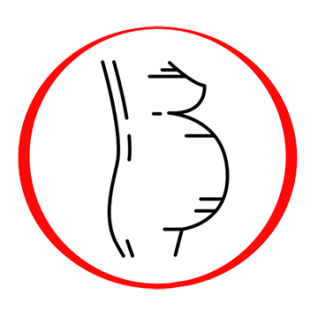Blood take service 5.00€

CMV IgG | Cytomegalovirus IgG antibodies
16.00€
The validity period of online orders: 3 months from the purchase date.
Cytomegalovirus (CMV) infection is a common viral infection in humans. About 50 percent Humans are infected with this virus without knowing it. CMV infection rarely presents with clinical signs, and when it does, it presents with symptoms similar to influenza or infectious mononucleosis.
CMV infection is dangerous for pregnant women and people with a weak immune system.
After being infected with CMV, it can remain in the body for life and if a person is healthy, it does not cause any concern.
CMV is spread from person to person through body fluids such as blood, saliva, urine, semen and breast milk. A pregnant woman with CMV infection can transmit the virus to her baby.
CMV can also be spread by:
vertically, perinatally (a pregnant woman infected with the virus infects the fetus during pregnancy, childbirth or breastfeeding);
after a long or close contact with an infected person, if hand hygiene or other precautions are not followed;
blood transfusion of a virus carrier;
when transplanting organs;
during intercourse.
About 1 percent women infected before conception transmit the virus to the fetus through the uterus. The risk of transmission to the fetus is about 50 percent if CMV infection is first contracted during pregnancy. Postnatal CMV infection is determined by the presence of the virus in the cervical secretions, but an even more common source of infection is breast milk. Cytomegalovirus is especially dangerous for fetuses, newborns, patients with malignant diseases, AIDS, severe congenital immunodeficiency, patients with blood transfusions or organ transplants.
The diagnosis of CMV infection must be confirmed by laboratory tests:
the patient is diagnosed with anemia, the number of platelets in the blood is reduced, the concentration of bilirubin and liver enzymes is increased, the total amount of protein is reduced, its fractions are changed;
specific tests detect the virus itself (in pharyngeal secretions, urine, blood, bronchial effusions, tissues) or specific proteins against it (in blood serum);
if it is determined that the pregnant woman has been infected with cytomegalovirus for the first time or the infection has worsened, fetal blood serum can also be tested.
Most often, CMV infection has to be distinguished from Epstein-Barr infectious mononucleosis, as well as from HIV acute retroviral syndrome, viral hepatitis, pneumonia of other origin.
Good hygiene skills are the best prevention against CMV. Health care workers have the highest risk of infection, but the precautions used in health care facilities reduce it. Precautions to help prevent infection:
Wash your hands as often as possible. Rub your hands with soap for at least 15-20 seconds. especially after contact with urine, feces or saliva of babies and small children.
Avoid contact with tears and saliva when kissing a crying child. These precautions must be taken especially by pregnant women.
Avoid sharing the same glasses or other cutlery. CMV can spread through shared dishes and utensils.
Safely dispose of used disposable hygiene products. Avoid contact with body fluids when handling used disposable hygiene and care products, and do not touch the mucous membrane of the eyes and nose with dirty hands until your hands have been washed.
Clean toys and changing tables. Wash, clean any surfaces that are contaminated with the child's urine or saliva.
Practice safe sex. Use condoms during sexual intercourse.
Vaccines for the specific prevention of CMV infection are being developed and experimental vaccines have already been tested. An experimental vaccine against human cytomegalovirus (CMV) infection, which poses a risk to developing fetuses after organ transplants in immunocompromised patients, has been shown to be safer and more effective than previous vaccines in preventing the infection from spreading globally.

Reference: 17128
16.00€






